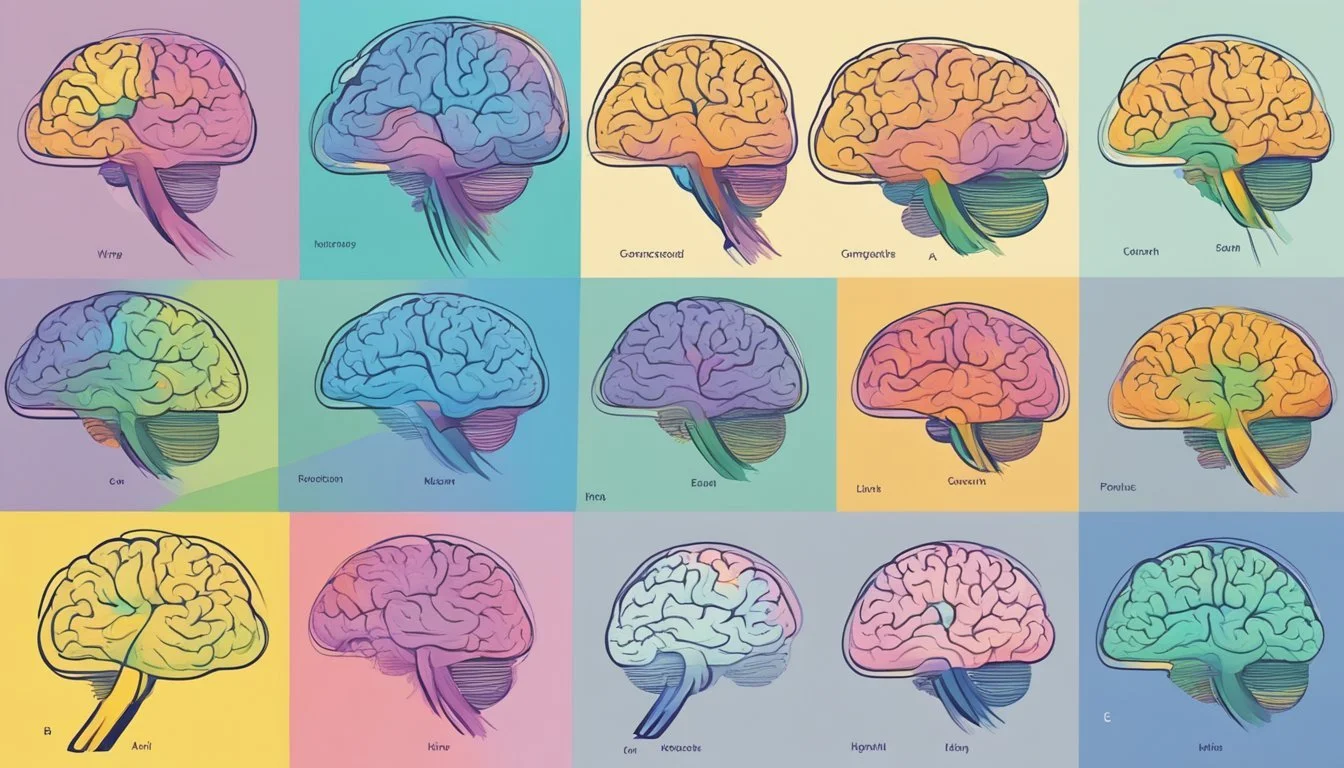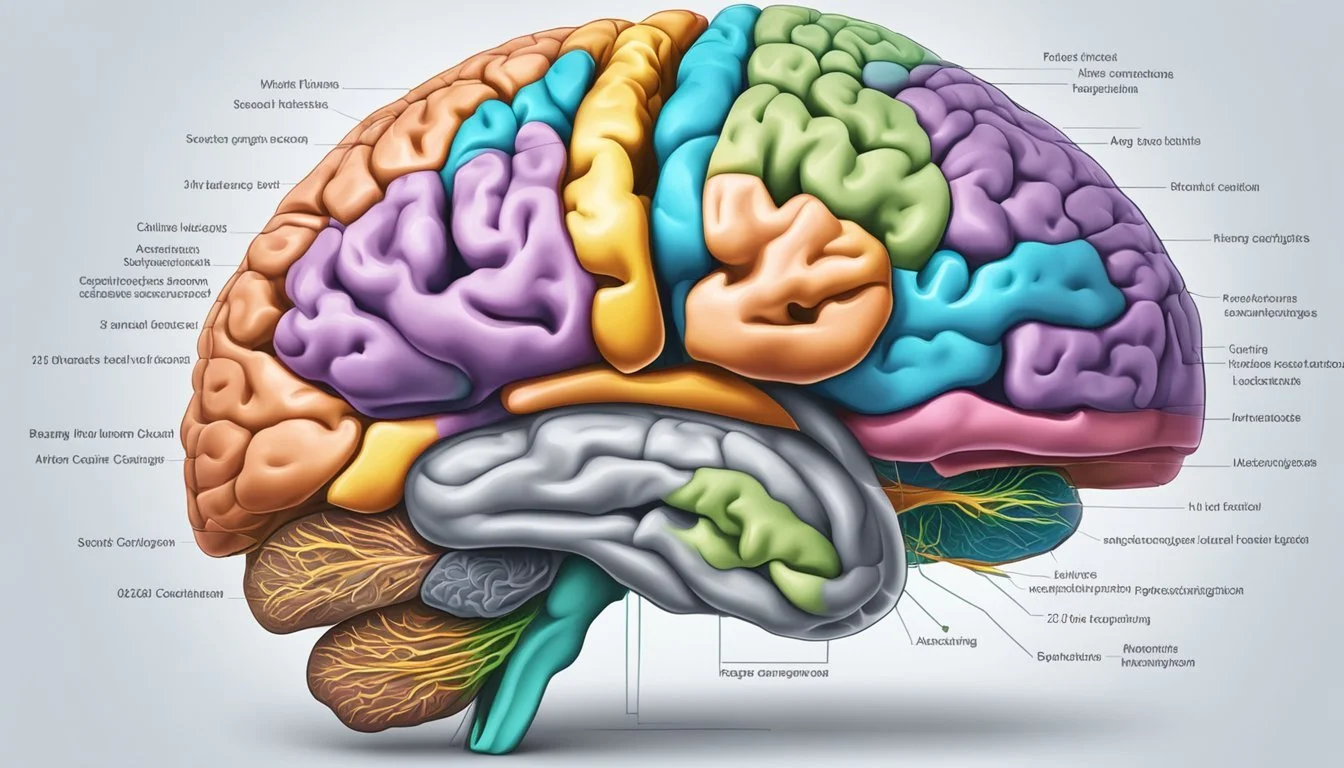Are Personality Types Scientifically Proven? Unpacking the Debate
Personality types have long captivated the public imagination, offering neat categories to understand human behavior. Many popular tests claim to sort individuals into distinct personality groups. Yet the scientific validity of these classifications remains highly debated among psychologists and researchers.
Rigorous studies have failed to find strong evidence supporting the existence of distinct, fixed personality types. While certain broad traits like extroversion and neuroticism are well-established, research suggests personality exists on a spectrum rather than in discrete categories. The appeal of personality typing persists despite its shaky scientific foundation.
Recent attempts using large datasets have proposed new personality type models, but these findings are still preliminary. The allure of simple personality classifications continues to clash with the complex, fluid nature of human behavior. As the search for scientifically-backed personality types moves forward, a more nuanced understanding of individual differences may emerge.
The Concept of Personality Types
Personality types attempt to categorize individuals based on common traits and behaviors. This framework has evolved over time, with various models proposed by psychologists and researchers.
Historical Overview
Carl Jung laid the foundation for personality typing in the early 20th century. He proposed that people could be classified based on their psychological preferences. Jung's work influenced Isabel Briggs Myers and Katharine Cook Briggs, who developed the Myers-Briggs Type Indicator (MBTI) in the 1940s.
The MBTI categorizes individuals into 16 distinct personality types based on four dimensions: Extraversion vs. Introversion, Sensing vs. Intuition, Thinking vs. Feeling, and Judging vs. Perceiving. This model gained popularity in corporate settings and self-help literature.
Modern Interpretations
Contemporary psychology has shifted towards more empirically-based models. The Big Five personality traits, also known as the Five-Factor Model, emerged as a widely accepted framework in the 1980s.
The Big Five consists of Openness, Conscientiousness, Extraversion, Agreeableness, and Neuroticism (OCEAN). This model is based on statistical analysis of personality questionnaires and is considered more scientifically robust than earlier typologies.
Personality Dimensions and Traits
Trait theory forms the basis of modern personality research. It posits that individuals possess varying levels of specific characteristics that influence behavior and attitudes.
Extraversion measures sociability and assertiveness. Agreeableness reflects empathy and cooperation. Conscientiousness indicates organization and dependability. Neuroticism assesses emotional stability. Openness gauges curiosity and creativity.
These traits exist on a spectrum rather than as distinct categories. Research suggests that personality is influenced by both genetic and environmental factors, with traits showing some stability over time but also potential for change.
Scientific Evaluation of Personality Typologies
Personality typologies have undergone rigorous scientific scrutiny to assess their validity and usefulness. Researchers employ various methods to evaluate these classification systems, aiming to determine their accuracy and practical applications.
Validity and Reliability Concerns
The validity of personality typologies is a primary focus for researchers. They examine whether these classifications accurately measure and represent the intended personality traits. Construct validity assesses if the typology truly captures the essence of personality.
Criterion validity explores how well the typology predicts real-world outcomes. Reliability is another crucial factor, measuring the consistency of results over time and across different assessments.
Internal consistency evaluates how well the items within a typology correlate with each other. Test-retest reliability examines if the results remain stable when the same individual takes the assessment multiple times.
Psychological Assessments
Personality tests form the foundation of many typologies. These assessments use carefully designed questions to measure various traits and characteristics. The Big Five model, for example, evaluates openness, conscientiousness, extraversion, agreeableness, and neuroticism.
Researchers develop and refine these tests to improve their accuracy and relevance. They consider factors such as:
Question wording
Response formats
Cultural sensitivity
Potential biases
Psychologists also compare different assessment tools to identify strengths and limitations. This process helps in creating more comprehensive and reliable personality measures.
Statistical Analyses
Advanced statistical techniques play a crucial role in evaluating personality typologies. Researchers analyze large datasets to identify patterns and clusters of traits. Factor analysis helps uncover underlying dimensions of personality.
Cluster analysis groups individuals with similar characteristics. This method has led to the identification of distinct personality types in some studies.
Machine learning algorithms are increasingly used to process vast amounts of data. These tools can reveal complex relationships between traits and behaviors.
Longitudinal studies track personality changes over time, providing insights into the stability of typologies. Meta-analyses combine results from multiple studies to draw broader conclusions about the validity of personality classifications.
Behavioral and Psychological Insights
Personality traits offer valuable insights into human behavior and psychology. They provide a framework for understanding individual differences in thinking, feeling, and acting.
Predictive Value of Personality Traits
Personality traits can predict certain behaviors and outcomes. Extraversion, for example, correlates with social engagement and job performance in roles requiring interpersonal interaction. Conscientiousness is linked to academic and career success.
Research shows that traits like openness to experience may predict creativity and adaptability. Neuroticism can indicate a propensity for anxiety and stress sensitivity.
However, predictions based on personality traits are not absolute. Environmental factors and individual circumstances play significant roles in shaping behavior.
Correlation vs. Causation
While personality traits correlate with various outcomes, establishing causation is challenging. A person's tendency towards introversion may correlate with preferring solitary activities, but it doesn't necessarily cause this preference.
Factors like upbringing, culture, and life experiences interact with innate traits to shape behavior. This complex interplay makes it difficult to isolate personality as the sole cause of specific actions or choices.
Researchers in personality psychology emphasize the importance of considering multiple factors when studying human behavior.
Applications in Daily Life
Understanding personality traits can offer practical guidance in various life domains. In relationships, recognizing differences in communication styles or emotional expression can improve interpersonal dynamics.
In career choices, aligning job requirements with personality traits may lead to greater job satisfaction. For example, detail-oriented individuals might thrive in roles requiring precision.
Personality insights can also inform personal growth strategies. Someone high in neuroticism might benefit from stress management techniques.
However, it's crucial to avoid rigid categorization. Personality traits exist on a spectrum, and individuals can adapt their behavior based on circumstances.
Big Data and Machine Learning
Recent advancements in data science have revolutionized personality research. Large-scale datasets and sophisticated algorithms now enable researchers to identify patterns and clusters in personality traits with unprecedented accuracy.
Clustering Personality Profiles
Researchers have applied clustering algorithms to vast datasets of personality assessments. These techniques group individuals with similar trait combinations, revealing distinct personality types. A notable study analyzed over 1.5 million respondents, identifying four meaningful clusters in personality dimensions.
The emergence of these clusters challenges traditional personality type theories. Data-driven approaches provide a more nuanced understanding of individual differences. Hiring managers can use these insights to better match candidates with suitable roles and team dynamics.
Machine Learning Models
Machine learning models have shown impressive capabilities in predicting personality traits from digital data. These algorithms analyze various data sources, including social media activity, text messages, and online behavior.
Studies have demonstrated moderate success in predicting personality traits using both human perception and machine learning algorithms. The accuracy of these predictions varies depending on the data source and specific traits being assessed.
Pattern recognition techniques allow these models to identify subtle correlations between digital footprints and personality characteristics. This approach offers a more objective and scalable method for personality assessment compared to traditional self-report measures.
Future Research Avenues
Future research in this field holds promising potential. Integrating diverse data sources and refining machine learning models may lead to more accurate personality predictions. Researchers are exploring ways to combine traditional psychological assessments with big data analytics for a more comprehensive understanding of personality.
Ethical considerations surrounding data privacy and consent will play a crucial role in shaping future studies. Balancing the benefits of personality insights with individual privacy rights remains a key challenge.
Longitudinal studies leveraging big data could provide valuable insights into personality development and stability over time. This approach may reveal how life events and experiences influence personality traits throughout an individual's lifespan.
Debates and Criticisms
Personality type theories face ongoing scrutiny from academics and the public. Questions persist about scientific validity, research methods, and potential misuse.
Academic and Professional Perspectives
Personality psychologists debate the scientific merit of type-based models. Critics argue that trait-identification approaches like the five-factor model lack sufficient empirical support. They point to issues with objectifying personality as a fixed attribute.
Some researchers contend personality types provide less statistical power than continuous variables. This can make detecting subtle effects more challenging in studies.
The person-situation debate highlights concerns about overemphasizing stable traits versus situational factors in predicting behavior.
Public Perceptions and Misconceptions
Popular personality tests like Myers-Briggs face criticism for oversimplification. Many experts caution against using such assessments for major life decisions.
Social media and online quizzes often present personality types as definitive. This can lead to self-fulfilling prophecies or limiting beliefs about one's capabilities.
Some view personality types as pseudoscience, citing lack of peer-reviewed evidence. Others defend their value for self-reflection and team dynamics.
Misconceptions arise when types are treated as rigid categories rather than general tendencies.
Practical Usage of Personality Typing
Personality typing has found applications in various fields, offering insights into individual differences and preferences. These tools can be valuable for personal growth, team dynamics, and career planning when used appropriately.
Professional Development
Personality assessments can help individuals identify their strengths and areas for improvement. Many professionals use personality profiles to enhance self-awareness and set development goals. For example, an introverted person might focus on building public speaking skills.
Some companies incorporate personality typing into leadership training programs. This allows managers to understand their own leadership styles and adapt their approaches when working with different team members.
Personality dimensions like extraversion-introversion can inform strategies for networking and professional communication. Extroverted individuals may thrive in roles requiring frequent social interaction, while introverts might excel in positions demanding deep focus and analysis.
Personality in the Workplace
Organizations often use personality assessments in team-building exercises. Understanding team members' personalities can improve communication and reduce conflicts. For instance, recognizing that some colleagues prefer detailed instructions while others value autonomy can lead to more effective collaboration.
Managers may consider personality types when assigning tasks or forming project teams. This approach aims to leverage individual strengths and create balanced groups. A team might benefit from having both intuitive big-picture thinkers and detail-oriented members focused on sensation and practicality.
Some companies use personality typing in their hiring processes, aiming to find candidates whose traits align with job requirements. However, this practice is controversial and should not be the sole basis for hiring decisions.
Education and Career Guidance
Career counselors often employ personality assessments to help students and job seekers explore suitable career paths. These tools can suggest occupations that align with an individual's personality traits and preferences.
Educational institutions may use personality typing to guide students in choosing majors or specializations. For example, a student with strong analytical skills and introverted tendencies might be well-suited for research-oriented fields.
Personality assessments can also inform learning strategies. Educators might tailor their teaching methods to accommodate different personality types in the classroom. This could involve offering a mix of group projects and individual assignments to engage both extroverted and introverted students.
Some career development programs use personality typing to help professionals identify potential career transitions that align with their natural inclinations and strengths.



